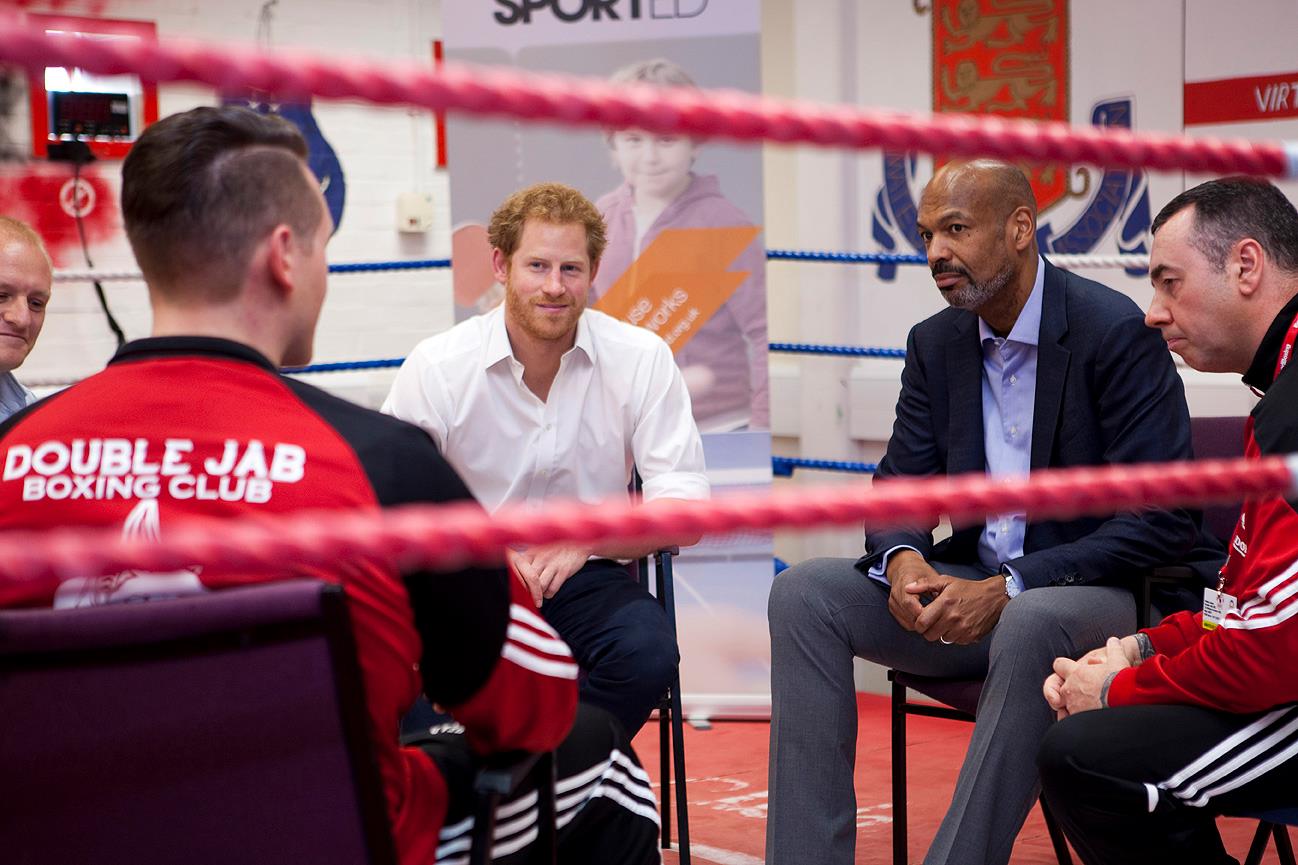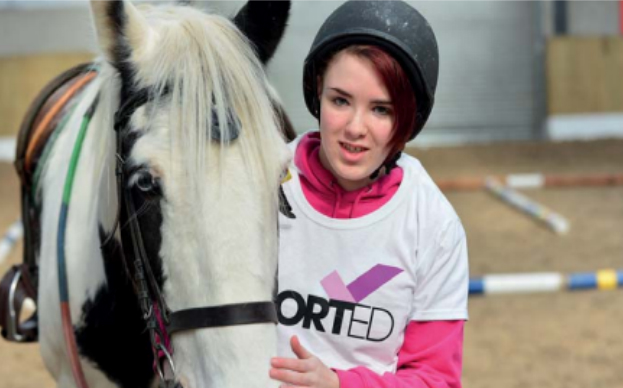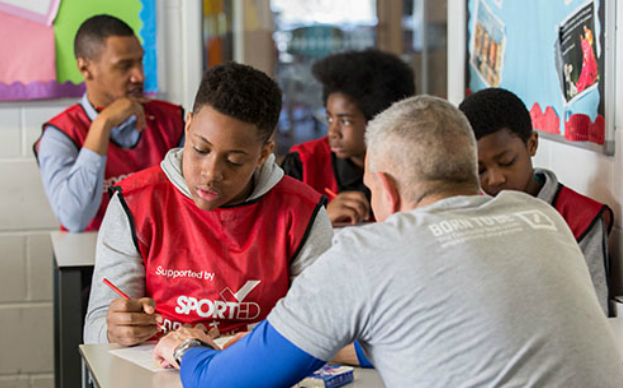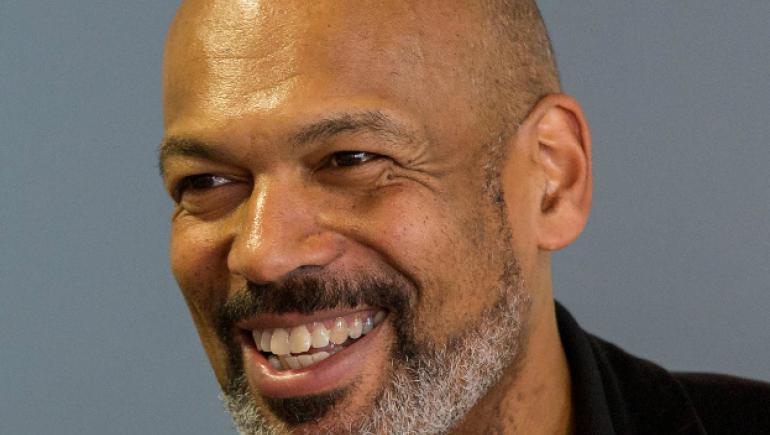After four-and-a-half years at the helm, Chris Grant has announced that next month he will stand down as Chief Executive of Sported, one of the UK’s leading Sport for Development charities. In the second part of this exclusive two-part interview with ConnectSport, Chris – who will become a Sported Trustee this Autumn, as well as continuing to serve on the Board of Sport England – talks about his pride at helping to lead a network of 3,000 community sport organisations during an unprecedented period of change for the Sport for Development sector, including the publication of the Government’s Sporting Future strategy.
Hi Chris. A recent proposal, from the then Justice minister Dr Philip Lee, recommended that boxing and martial arts be used in prisons to reduce re-offending across the UK. This was rejected by the Government, although the Ministry of Justice has subsequently published an independent review of best practice across the prison estate. Do you see these as evidence of the progress of the Sport for Development sector?
“There’s undoubted progress. I chaired a roundtable a year ago which was attended by the Ministry of Justice, Health, Civil Society and (Sports Minister) Tracey Crouch, and there is definitely an interest from different Government departments.
“Philip Lee was particularly supportive of, and interested in, sport and physical activity, and what it could do in prisons. However he moved on, as Ministers do.
 “Regardless of the way our broader political system is behaving and operating at the moment, the continuity that we have had from Helen Grant into Tracey Crouch as Minister for Sport has been hugely valuable, and a real sign of progress which we couldn’t have done without.
“Regardless of the way our broader political system is behaving and operating at the moment, the continuity that we have had from Helen Grant into Tracey Crouch as Minister for Sport has been hugely valuable, and a real sign of progress which we couldn’t have done without.
“But I also don’t think we should be satisfied with the odd Select Committee, or odd programme, here or there. You could look at crime and justice, or you look at what Street League has done within the field of youth employment in England and Scotland. It is really encouraging and they have led the way on some of the standards around measurement.
“However, relative to what we could be doing for the country, I think as a sector we are scratching the surface, and – let’s be honest – we’re fighting over crumbs.
“So at Sported right from the start, our aim has been to collaborate. I understand why, when there aren’t many resources to go around, it doesn’t feel easy to partner or to act collaboratively – it’s a really difficult time to be running a charity. But Sport England co-funding the Coalition alongside Comic Relief and Laureus is a really positive step forward, and there’s a lot more that could be done to foster partner and collaboration.
“I would certainly anticipate Sported continuing to do the same in the future.”
Do you think perhaps the work of Sported, and other sports charities, has been underestimated at the heart of the sector?
“I did some research before visiting one of our regional managers recently and worked out that she had personally visited 82 groups over the previous year. That’s what I call real ‘shoe leather’.
“This is the one thing that I would like to stand up and shout about as I step out of Sported. It’s not glamorous work and I think people don’t understand the volume of face-to-face conversations we have.
 “If all of the community sport for development groups went on strike for a month, anti-social behaviour would shoot up and educational attainment over time would go down.
“If all of the community sport for development groups went on strike for a month, anti-social behaviour would shoot up and educational attainment over time would go down.
“So when we talk about policy, and how progress has been slower than we would have wished, I think it ought to be in service of the brilliant work which is already happening in communities. I think what the sector really needs to understand is how to serve the grassroots, rather than use them.
“Sport England have now asked if they can bring some members of our team in (on secondments) to help around local delivery pilots, changing the way they are looking at small grants. This is a really big step forward and it encourages me.
An executive search firm has been appointed to find your successor, with Tom Burstow acting as interim CEO. When you finally meet the new CEO, what will you say to him or her?
“Looking back over the 10 years of Sported, early on we gave away a lot of money from (founder) Sir Keith Mills’ family to small groups in the sector and we froze that programme within a few weeks of me arriving because we couldn’t afford to just keep giving money away and we needed to open up our own revenue streams. So I would say to the incoming CEO that the value we can give to our members by teaching them to raise money is much greater – you know the old saying ‘teach someone to fish rather than giving them a fish’.
“I would also tell them that collaboration can be hard – but don’t give up – and I would say do everything you can to make the sector get joined up when talking about the value of what it does.
“I think we have been too modest at Sported; one of our Trustees used to say ‘don’t brag until you’ve got something to brag about’…. but I do think we’ve got something to brag about now. The new CEO will probably have to do some more work explaining to people the value of capacity-building and our core business.
 “Finally I’d say don’t fall into the trap which some UK-wide charities do, of behaving like you’re just an England-wide charity. I don’t think there is another sport for change charity which is genuinely UK-wide, so you can go to Derry or Aberystwyth and we are working there.
“Finally I’d say don’t fall into the trap which some UK-wide charities do, of behaving like you’re just an England-wide charity. I don’t think there is another sport for change charity which is genuinely UK-wide, so you can go to Derry or Aberystwyth and we are working there.
“The groups we support are the nutrients in the soil – not only of sport, not only of community development, but of this whole nation. They deserve their own nurturing, because they are nurturing young people. They deserve people like us to be behind them asking what they need.”
Finally Chris, what’s next for you?
“There’s one project in particular that I am moving on now, which could be a game-changer and help with that Sport for Development ‘revolution’ we have talked about before.
“I think one of the really interesting opportunities is to see the whole sports sector as a system. Although there was a logic in separating out UK Sport from the home nations’ sports councils, I think a lot of the most fertile territory for change is at the intersection in those talent pathways, where UK Sport meets Sport England, Sport Scotland, Sport Wales and Sport Northern Ireland, so I am going to be doing some work on that. I think that can be one of the trigger points for some bigger change in terms of what sport and physical activity can do for social change.
“The legacy from 2012 is not dead, even if we don’t hear about it much any more. I’m grateful to the vision and the generosity of Sir Keith Mills in setting up Sported and funding it since 2008. I want to acknowledge Sir Keith and his family for what they have done, because if Sported didn’t exist then someone would need to invent it.”
Read part one of this interview here.
Find out more about Sported on their ConnectSport directory page. To add your organisation to the directory, contact hello@connectsport.co.uk.












